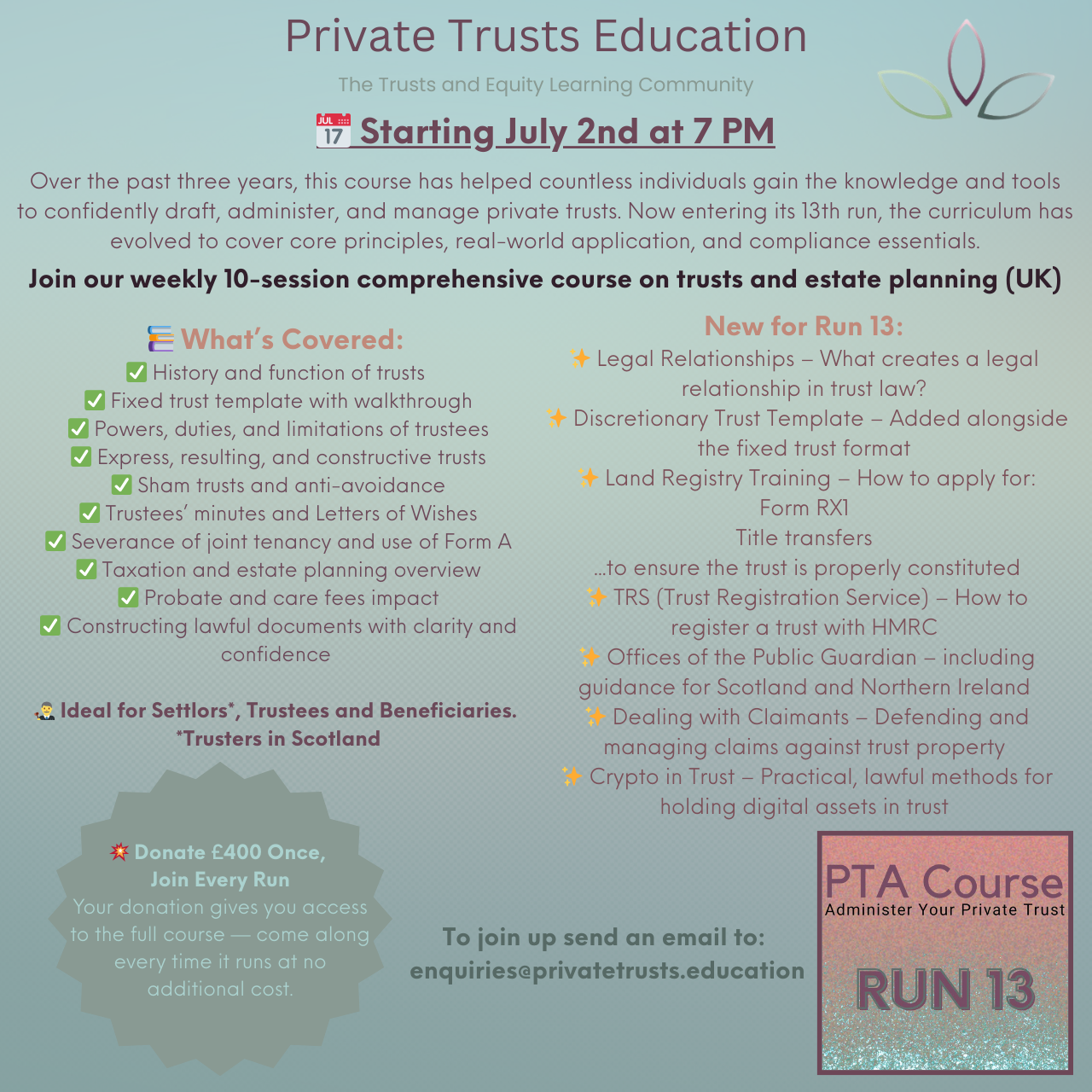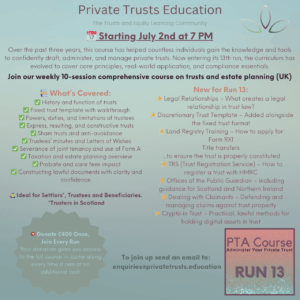6. Trust Enforcement
According to article 6 of the Recognition of Trusts Act 1987 “A trust shall be governed by the law chosen by the settlor”. Within a private trust, it is important to state that the jurisdiction chosen by the settlor is the jurisdiction of equity. As equity needs to be invoked, it would then be the duty of the trustee to enforce that trust in a court of chancery if required.
Normally, the trustee would avoid having to go to court if the trust is enforced directly with the claimant. For debtor/creditor relationships, it would be sufficient to provide a notice to make the claimant aware that the property is held in trust.
For legal or banking situations, an affidavit of trust would be more suitable to provide the information of the trust holding the property they are trying to claim against. It is also possible to ring-fence legal titles using a restriction in order to get the trust name within section B of the title deed. This helps with evidence that can be used in court.
The most important aspect of keeping a private trust, and being able to enforce it, is record keeping. Considering what would be required in court to prove that the property is held in trust is important and having that evidence through keeping of records is fundamental.
There is also the doctrine of notice, which also sits within equity, whereby public notices can be used to prove that property is held in trust. A public notice will invite objections/proposals and, if none are received, can be used in court as evidence of the fact that the public were informed.
Once a private trust is set up and the trustee is informed on how to administer it, then it is easy to keep it ticking over. Thereafter it should be handed down to the next generation so they can take over the administration and enforcement; trusts are designed to last for many generations. It is said, at the turn of the 1800s, the Rockefellers had 200 trusts; now they have over 2000 as they have been handed down through the generations.
It’s important that this knowledge is handed down to subsequent generations through us, as we would never be taught this in school. Handing down this knowledge through trusts (and within trusts) ensures not only that our bloodline is protected, but also our legacy.












